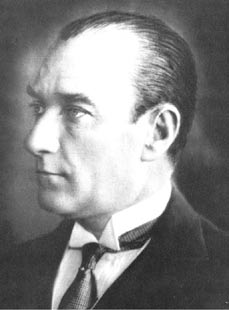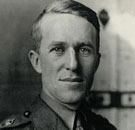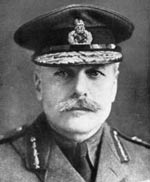
Ataturk was born in 1881 in the now Greek city of Thessaloniki.
He was an able student, and from an early age, he became involved in the burgeoning movement for Turkish independence. He was part of a movement critical of the old, stale, corrupt Ottoman regime.
In the First World War, he served with distinction, holding off the Allied attack at Gallipoli. He made passionate please to his soldiers to lay down their lives for their home country.
“There is no defense line, but a defense territory, and that territory is the whole of the motherland. Not even an inch of the motherland may be abandoned without being soaked in the blood of her citizens…”
He later served with distinction in Palestine. He was an able military leader, naturally gaining the respect, admiration and devotion of his soldiers.
At the end of the First World War, a harsh peace treaty was imposed on the defeated Turks. In 1921, it looked as if Turkey would be occupied by the Greeks. Ataturk persuaded the new national assembly to fight the Greek invasion. He was given permission and successfully defeated the Greeks. A year later in 1922, at the Treaty of Lausanne, Turkish independence was confirmed.
Ataturk was a believer and follower of the Renaissance ideals of modern Europe. He saw the new nation as an opportunity to sweep away the old traditions of the Ottomans. In particular, he wanted to see a separation between the state and religion. Laws were passed to encourage secular dress and keep religion well out of politics. He was dismissive of religion and sought to undermine its power.
“In human life, you will find players of religion until the knowledge and proficiency in religion will be cleansed from all superstitions, and will be purified and perfected by the enlightenment of real science.” Speech (October 1927)
His decision to abolish the caliphate was a key point in diminishing the power of Sunni Islam over the new nation-state. Ataturk was also dismissive of the demands of ethnic minorities such as the Kurds. Ataturk also wished to see the emancipation of freedom. He banned the face veil and spoke highly of women’s potential.
“Humankind is made up of two sexes, women and men. Is it possible for humankind to grow by the improvement of only one part while the other part is ignored? Is it possible that if half of a mass is tied to earth with chains that the other half can soar into skies”
Religious views
Whilst Ataturk was a sceptic of religion – especially when it had secular power, he accepted religion could play an important role in individual lives.
“Religion is a matter of conscience. One is always free to act according to the will of one’s conscience. We (as a nation) are respectful of religion. It is not our intention to curtail freedom of worship, but rather to ensure that matters of religion and those of the state do not become intertwined.”
There is a dispute and uncertainty about whether Ataturk himself was a devout Muslim or agnostic in his own faith. From his public speeches, it is more likely he was agnostic.
Domestic policy
Whilst Turkey gained a much more western outlook, moves to democracy were slow; Ataturk’s power was very great and Turkey was effectively a one-party state. His leadership was sometimes described as an ‘enlightened’ autocracy. But, his popularity was strong amongst the population and his vision of a modern secular Turkey was implemented.
The modern state faced many challenges both at home and abroad. In particular, the great depression of 1929-31 led to widespread economic upheaval. However, from 1931 a mixture of state planning and intervention helped the economy recover. Turkey was able to survive without becoming either a Fascist or Communist dictatorship.
Ataturk died in 1938 from a cirrhosis of the liver. He was a bright, intelligent and vivacious man. He had a profusion of interests from chess to dancing, literature and music. His death was widely mourned throughout Turkey. His image is still revered today, where it remains a crime to insult the father of the nation.
“I do not leave any verses, dogmas, nor any moulded standard principles as moral heritage. My moral heritage is science and reason. What I have done and intended to do for the Turkish nation lies in that.”
Ataturk’s legacy remains important in modern Turkey as modern Islamic parties seek to gain greater influence in the political process. Even the decision for a woman to wear the traditional Islamic headdress can be controversial.
Citation: Pettinger, Tejvan. “Biography of Ataturk”, Oxford, UK. www.biographyonline.net, 1st Feb 2010. Last updated 22 September 2019.
Books on Ataturk
Ataturk – The Rebirth of a Nation – Patrick Kinross at Amazon
Related pages




